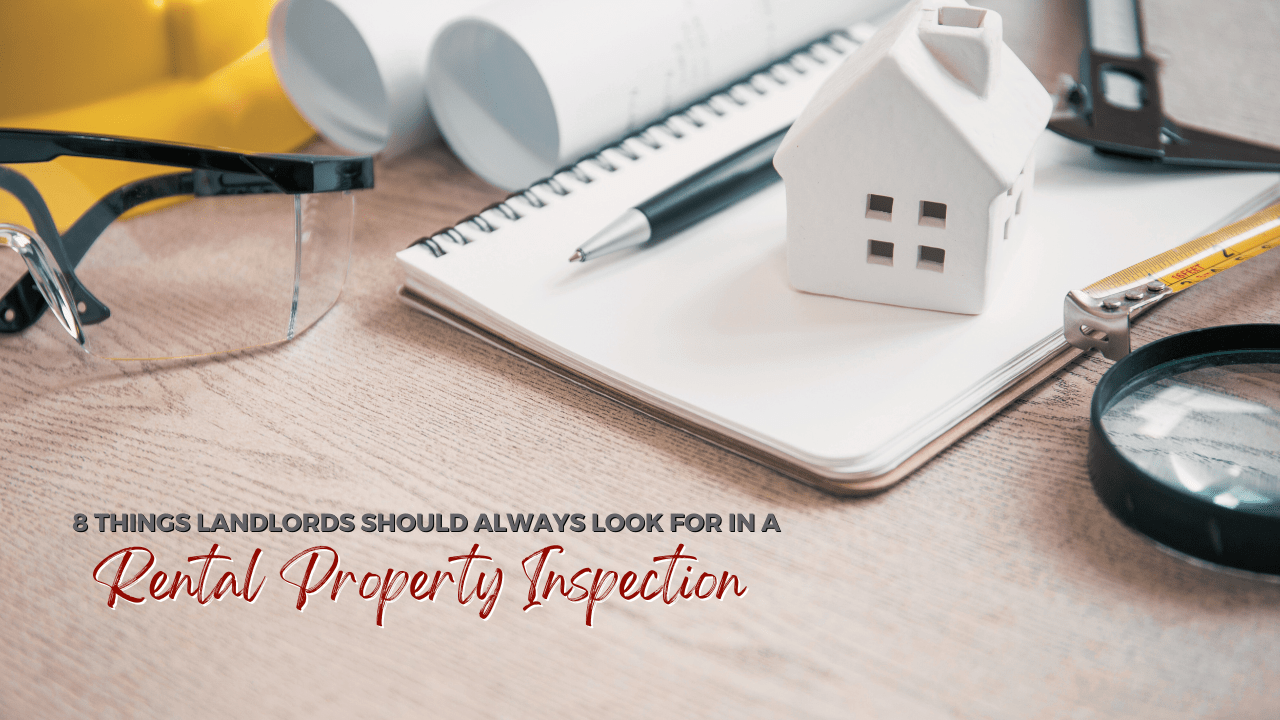
Rental property inspections are an important part of protecting your Indianapolis investment property. But, what specifically should you be looking for when you conduct inspections?
Here are 8 things that should never go unnoticed during a rental property inspection.
1. Safety and Habitability Issues
Safety is where every rental inspection should begin. Make sure your tenants are safe from accidents while living on your property. Check the electrical system. Test the locks on doors and windows. Look for loose floorboards and handrails. Make sure there’s adequate lighting. Test the smoke detectors and the carbon monoxide detectors. Safety issues cannot wait to be addressed. Inspect for them every time, and make any necessary repairs right away.
2. Leaks and Plumbing Issues
Water damage is always problematic. Leaks and drips and toilets that don’t flush can be an extreme hazard to rental properties.
When you’re inspecting, look at every faucet. Flush every toilet and check the showers, the tubs, and the appliances. Look for evidence of moisture under the floors.
3. Inspect the Heating and Cooling System
Your heating and cooling system is usually the most expensive system in your property. Avoid expensive replacements and extend the lifespan of your air conditioning unit, furnace, and ventilation system. Always look at your HVAC system when you’re inspecting. Have it professionally serviced and inspected annually.
4. Property Condition and Cleanliness
Confirm your rental home is in good condition. Make sure it’s clean. Your tenants may not have the same standards for cleanliness that you do, but you want to check that there isn’t any trash or debris gathering inside the house that might attract insects or rodents.
Cleanliness must also be an inspection point when the home is empty. It has to be professionally cleaned before a tenant moves in, and this should be part of your turnover process after a tenant departs.
5. Tenant Damage
During the move-out inspection, you’ll be looking specifically for tenant damage. This is different from general wear and tear. While you’re responsible for wear and tear replacement costs, the tenant can be held accountable for any damage that’s left behind. Collect a lot of documentation and put together an itemized list of what was damaged and what it cost to make repairs and replacements. You’ll need this to back up your security deposit deductions.
6. Opportunities for Upgrades and Improvements
During your inspection, evaluate what kind of improvements might increase your rental value. Repairs are one thing, but upgrades and improvements can go a long way toward increasing rents and tenant satisfaction. Where can you make some updates?
7. Inspect for Deferred and Unreported Maintenance
You want your tenants to report maintenance needs immediately, even if you can’t respond right away.
Preventative maintenance is always going to be less expensive than emergency repairs. If something isn’t working right, make a note and schedule the repair with a trusted vendor. You may not know a repair is needed until you inspect the property. Always look for deferred and unreported repair needs when you’re inside the home.
8. Tenant Satisfaction
Inspecting when a tenant is in place provides an opportunity to work on your retention plan. Have a friendly conversation with your tenants about their rental experience. You want to provide good customer service and keep an open and transparent dialogue going with your tenants. Find out how they like the property, what they wish they had that they don’t already have, and whether there’s anything they need help understanding about the rental process or the lease agreement.
 These eight points are a starting place. If you’d like to talk more about the importance of inspections at your Indianapolis rental property, please contact us at Red Door Property Management.
These eight points are a starting place. If you’d like to talk more about the importance of inspections at your Indianapolis rental property, please contact us at Red Door Property Management.








